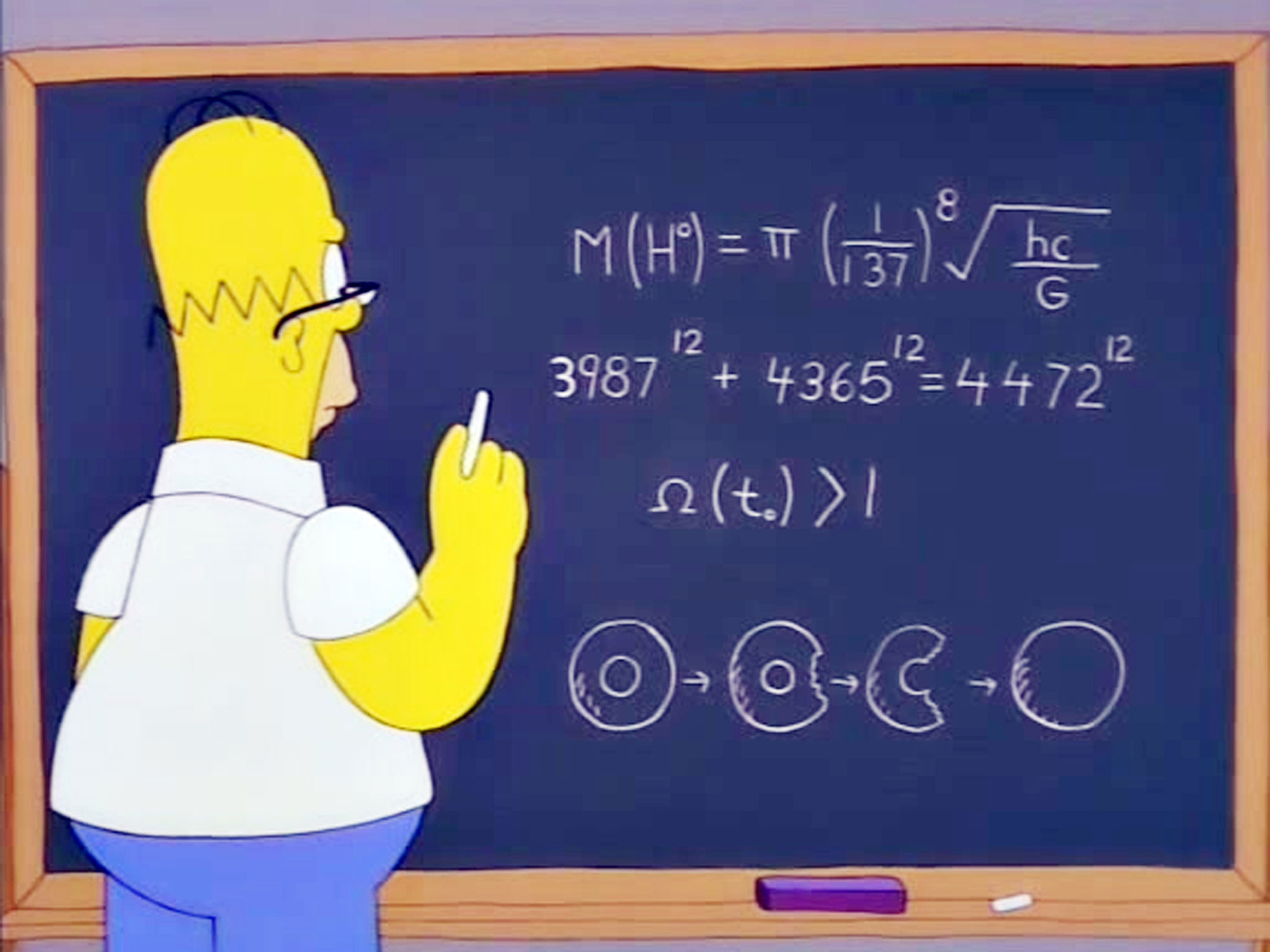A lot of the Higgs boson was calculated by Homer Simpson 10 years ago
 It’s no secret that “The Simpsons” is not just a cartoon; in The Simpsons, the plot is multi-level, each viewer can find something of his own. The child may simply giggle at Bart's antics, learning how to stand and not to behave in society. Fathers and mothers of families can also learn a lot of interesting things. In addition, the plot of many episodes contains mathematical paradoxes, references to the most complex philosophical problems and mathematical problems. This level is no longer available even to every scientist. Probably, in this respect, only Futurama can compete with the Simpsons.
It’s no secret that “The Simpsons” is not just a cartoon; in The Simpsons, the plot is multi-level, each viewer can find something of his own. The child may simply giggle at Bart's antics, learning how to stand and not to behave in society. Fathers and mothers of families can also learn a lot of interesting things. In addition, the plot of many episodes contains mathematical paradoxes, references to the most complex philosophical problems and mathematical problems. This level is no longer available even to every scientist. Probably, in this respect, only Futurama can compete with the Simpsons.But “Futurama” is still almost a science fiction work, and “The Sims” are considered to be an everyday cartoon. According to Simon Singh , a popularizer of science and the author of a new book about mathematics in a cartoon, a large number of scriptwriters work on the animated series who studied physics and mathematics at Harvard and now leave “jokes for their own” in the plot, and these jokes just pass by the attention of the inhabitant - an ordinary person, without special education, cannot understand and grasp such a “humor”. In addition, the things that Homer is telling or writing are slipping past people’s attention.

For example, in the second series of the tenth season of the cartoon (this episode was released back in 1998), Simpson writes something on the board. By the way, the episode is called “The Wizard of Evergreen Terrace” (“The Wizard of the Evergreen Alley”), and the story of Homer is upset because of the meaninglessness of his existence. He decides to change his life, devoting it to inventions. So, at one of the moments, Simpson writes several formulas on the board, the first of which, as it turned out , with good accuracy calculates the Higgs boson mass (on Geeks, there are probably people who can verify this statement).
')
In addition, Dr. Singh considers The Simpsons to be one of the most mathematized TV shows, where in almost every episode there are tons of mathematics and a lot of hidden signals for "friends." Actually, in the Simpsons there is not only a “ton of mathematics”, there are also a large number of jokes that will be understood by psychologists, philosophers, physicists, biologists and representatives of many other specialties.
Source: https://habr.com/ru/post/365177/
All Articles